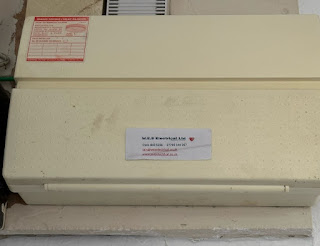Understanding the Importance of EICR in Partick
Electrical Installation Condition Reports (EICRs) are vital for ensuring the safety and efficiency of electrical systems in both residential and commercial properties. In Partick, as in many other areas, these reports play a crucial role in maintaining the electrical health of buildings and safeguarding the well-being of their occupants. This blog will delve into what EICRs are, their importance, and specific considerations for properties in Partick.
What is an EICR?
An Electrical Installation Condition Report (EICR) is a formal document produced following an assessment of a building's electrical installations. This assessment is carried out by a qualified electrician or electrical contractor. The purpose of an EICR is to:
- Identify any damage, deterioration, or defects in the electrical system that may pose safety risks.
- Ensure that the electrical installation complies with the current national safety standards (BS 7671 in the UK).
- Provide a detailed record of the condition of the installation at the time of the inspection.
Why Are EICRs Important?
1. Safety
The primary purpose of an EICR in Glasgow is to ensure the safety of the property's occupants. Faulty electrical systems can lead to electric shocks, fires, and other serious hazards. Regular inspections help to identify and rectify potential dangers before they cause harm.
2. Legal Requirements
In the UK, landlords are legally required to ensure that the electrical installations in their rental properties are safe at the start of a tenancy and maintained in a safe condition throughout. EICRs are a key part of fulfilling these obligations. Recent regulations require landlords to have EICRs conducted every five years.
3. Insurance
Many insurance companies require an up-to-date EICR as a condition of their policies. In the event of an electrical-related claim, having a valid EICR can be crucial for proving compliance with safety standards.
4. Property Value
For property owners, especially those looking to sell, an up-to-date EICR can be a valuable selling point. It provides potential buyers with peace of mind that the electrical system is safe and up to standard.
EICR in Partick: Specific Considerations
Partick, located in the West End of Glasgow, is known for its mix of residential and commercial properties, ranging from historic tenements to modern developments. This diversity means that the electrical systems in Partick's buildings can vary widely in age and complexity. Here are some specific considerations for EICRs in this area:
1. Historic Buildings
Partick is home to many older buildings, some of which have historical significance. These properties often have older electrical systems that may not meet current safety standards. EICRs are particularly important in these cases to ensure that any outdated or potentially hazardous installations are identified and upgraded.
2. Tenement Flats
Tenements are a common feature in Partick. These buildings typically have multiple occupants, increasing the importance of regular EICRs to ensure the safety of all residents. Shared electrical systems and communal areas require careful inspection to avoid potential hazards.
3. Commercial Properties
Partick has a vibrant commercial sector with shops, restaurants, and offices. Commercial properties have different electrical needs and safety standards compared to residential properties. Regular EICRs help business owners comply with health and safety regulations and protect their staff and customers.
4. New Developments
With ongoing development in the area, new buildings are continually being added to Partick’s landscape. While new constructions generally adhere to the latest standards, an EICR can provide an additional layer of assurance that all installations are safe and correctly implemented.
Conclusion
EICRs are a critical component of property maintenance and safety in Partick. Whether you own a historic tenement flat, run a business, or live in a modern apartment, ensuring that your electrical systems are regularly inspected and maintained is essential. By understanding the importance of EICRs and scheduling regular inspections, you can help protect yourself, your property, and others from electrical hazards.
If you're in Partick and need an EICR, be sure to contact a qualified electrician who can provide a thorough and professional inspection. Stay safe and ensure your property’s electrical health with regular EICRs.












